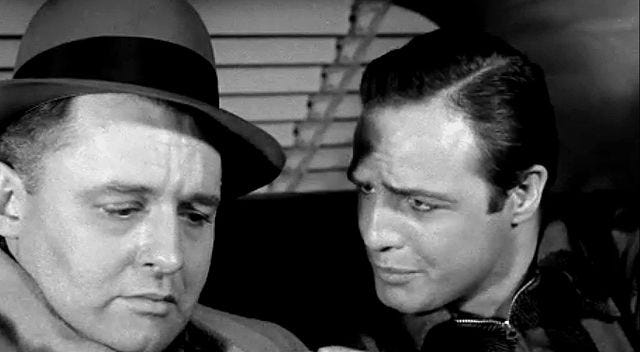The word longshoreman was coined for those hired to load and unload ships — they worked “along the shore.” The job was depicted notably in the classic 1954 Marlon Brando movie On the Waterfront. A longshoreman’s work in those days was difficult and dangerous. Because of the hard physical labor involved, the men were noted for brawn rather than brains.
So, it was surprising that a penetrating book of practical philosophy should be credited to a writer who had spent the previous quarter century of his life on the docks of San Francisco. Eric Hoffer was a working man, a streetwise author who understood the dreams and hopes of those around him, and also their resentments and prejudices.
His first book, published in 1951 as he was nearing fifty, was The True Believer: Thoughts on the Nature of Mass Movements. Readers were astounded that this self-educated author could have written such an insightful volume. Even more striking is the fact that the book is nearly as fresh and relevant today as it was seventy-five years ago.
“All mass movements,” Hoffer wrote, “breed fanaticism, enthusiasm, fervent hope, hatred and intolerance; all of them are capable of releasing a powerful flow of activity, all of them demand blind faith and singlehearted allegiance.”
Although Hoffer’s writing is clear and precise, the details of his life are hazy. He claimed to have been born in the Bronx, New York, in 1902. He said his parents were immigrants from Alsace, then part of Germany. He had worked odd jobs, spent time on skid row, and labored as a migrant farm worker before becoming a longshoreman.
The trouble is that none of the facts of his life before he arrived on the docks can be verified. No one ever admitted to knowing him as a youth. He turned up in no census until the age of forty. Some have suggested that, having been born in Germany, he never became a legal resident of the U.S.
Yet this mysterious character displayed a deep understanding of humanity. Hoffer was always an avid reader — he haunted public libraries. He based his theories on a keen analysis of the totalitarian regimes of the 1930s in Italy, Germany, and Russia. But he also relied on an understanding of human nature gained during his rough-and-tumble life.
He perceived that the devotees of mass movements were frustrated. They were stymied by “the altered complexion of society, the rush of change, the crumbling of old certainties. Their tendency is to look back to a golden age, and to look forward to a bright future. It’s today where their dissatisfaction lives. They hate the present.”
“The presence of an outstanding leader is indispensable,” he wrote. “Without him there will be no movement.” Devotees do not look for an effective administrator or a skilled politician. They want a true leader, someone they trust, someone they can idolize.
Hoffer shaped a portrait of that leader. He needs “audacity and a joy in defiance; a fanatical conviction that he is in possession of the one and only truth; faith in his destiny and luck; a capacity for passionate hatred; contempt for the present; a cunning estimation of human nature.” He also has to have “the ability to evoke fervent devotion in a group of able lieutenants.”
“Make-believe plays perhaps a more enduring role than any other factor,” Hoffer determined. “There is no doubt that in staging processions, parades, rituals and ceremonials, a mass movement touches a responsive chord in every heart.”
In the iconic scene from On the Waterfront, Brando plays a longshoreman who tells his brother, “I coulda had class. I coulda been a contender. I coulda been somebody.” Followers of movements want to be somebody.
Hoffer prided himself on being a “learner” rather than “learned.” In spite of being a card-carrying member of the Longshoremen’s Union, he was not a leftist. He went along with the anticommunist thinking of his era. In 1956, President Eisenhower’s admiration inspired journalists to call him “Ike’s favorite author.”
Mass movements, Hoffer wrote, strive “to interpose a fact-proof screen between the faithful and the realities of the world. The ultimate and absolute truth is already embodied in their doctrine and there is no truth nor certitude outside it.” The true believer “cannot be weaned away from his cause by an appeal to reason.”
Hoffer had a knack for pithy observations. “We lie the loudest when we lie to ourselves,” he wrote. “Rudeness is the weak man's imitation of strength.” “You can never get enough of what you don’t really need.” “You can discover what your enemy fears most by observing the means he uses to frighten you.”
In one of his later works, Hoffer wrote, “Every great cause begins as a movement, becomes a business, and eventually degenerates into a racket.”
These words, written in the 1950s, continue to ring true. Many who read them today will sense the enduring relevance of this longshoreman philosopher. Hoffer died in 1983. A true writer, he summed up his work by saying, “all I have accomplished is that I have written a few good sentences.”
Thanks to all of those who have signed up as premium subscribers. Spread the word.








Your historical reviews are admirably reserved. I can’t remember you slipping in a single reference to present day society. This, to me is uplifting. You respect our intelligence. We don’t need those references. Thanks, Jack.
He nailed it.